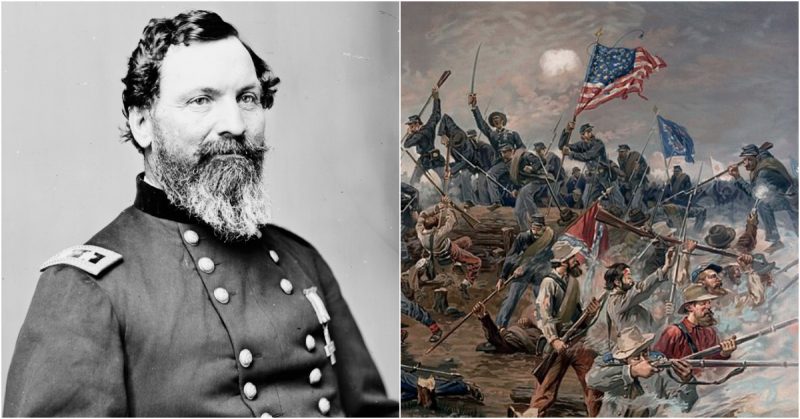His men were clearly embarrassed but couldn’t help ducking each time the gunfire came.
There are several monuments raised in memory of the Battle of Gettysburg which is, indeed, the bloodiest battle of the American Civil War. Among these monuments, there are essentially eight equestrian statues, one of which was made in honor of General John Sedgwick.
Sedgwick was a man with an interesting personality. He was known to be a brave, reliable, experienced, but friendly general in the Union Army. However, what makes his story even more memorable is his fate in the 1864 Battle of Spotsylvania.
Among the things that focus the spotlight of history on the Battle of Spotsylvania are John Sedgwick’s final words which are among the most ironic last words in history.
Major General Sedgwick was born in Cornwall, a small town in Connecticut, on the 13th of September 1813.
Named after his Grandfather who was a veteran of the American Revolutionary War, Sedgwick spent just two years as a teacher before following in the footsteps of his grandfather with a move toward a career in military service.
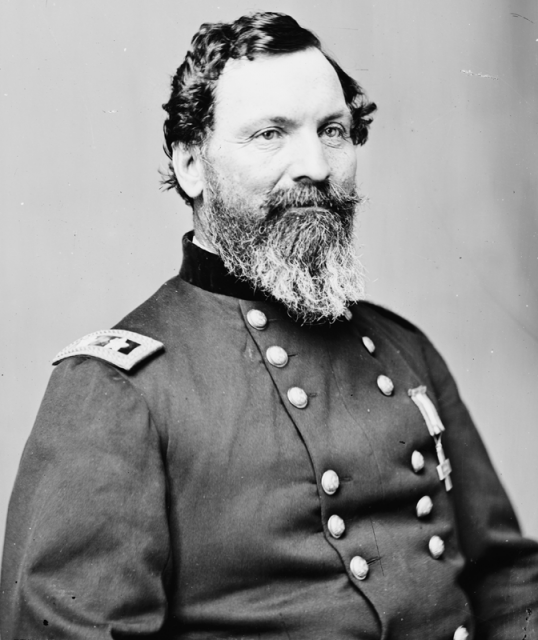
He graduated from the Army West Point Class of 1837 ranking 24th out of 50 and would enter service as a second lieutenant in the U.S. Army’s artillery branch.
He had his debut combat action in the Seminole Wars and, following a record of gallantry and meritorious conduct, he earned two brevet promotions in the Mexican-American War. Ultimately, he ended the war as a major.
A few years after the Mexican-American War, Sedgwick was back on the battlefield. He took part in the Utah War and also in the Indian War. In 1857, he led a force in a punitive movement against the Cheyenne.
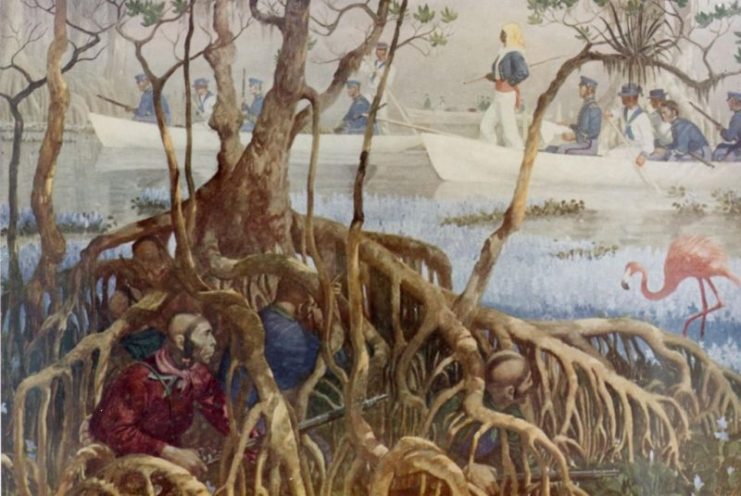
1861 would see the outbreak of the American Civil War, and Sedgwick was there to lead men of the Union Army. He is said to have been one of the most beloved generals in the Union Army, with his soldiers referring to him as “Uncle John.”
He fought in the month-long Siege of Yorktown and the Battle of Seven Pines, following it up with participation at Savage’s Station and Glendale during the Seven Days Battle. It was during hostilities at Glendale that he was first wounded.
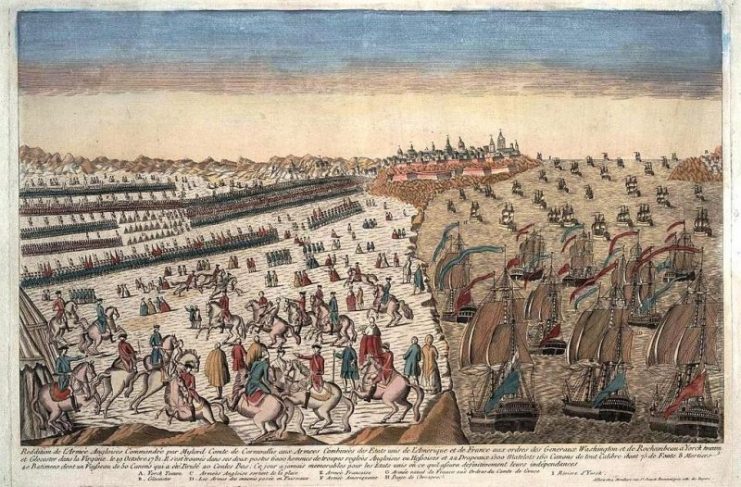
Another engagement in the Battle of Antietam would see him get shot in the wrist, leg, and shoulder.
He returned to the battlefield in 1863 as a major general, leading the VI Corps in the Battle of Chancellorsville, Gettysburg, and so forth.
His last battle would, however, be the Battle of Spotsylvania, which came as a sequel to the bloody but inconclusive Battle of the Wilderness. During this hostile encounter with General Robert E. Lee’s Confederate Forces, over 32,000 casualties were recorded on both sides.
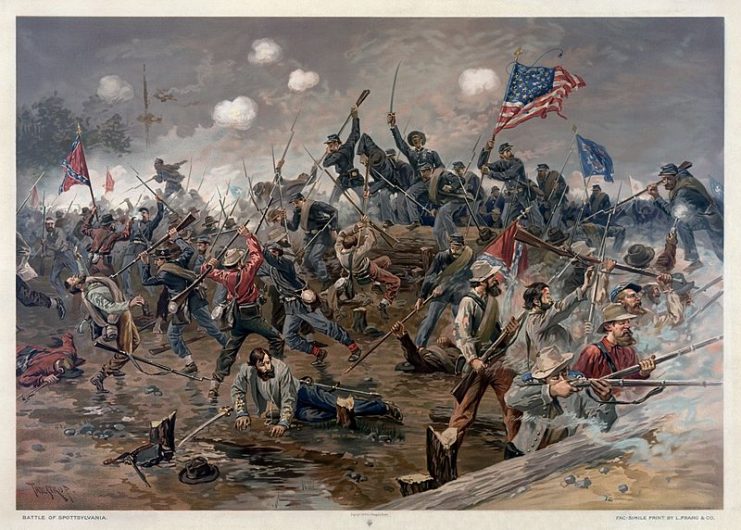
At the beginning of the battle, while Sedgwick coordinated artillery placements, bullets began darting in from the Confederate lines. They whistled through the air. It turned out that Confederate sharpshooters were positioned about 1,000 yards (914 meters) away.
Men of the VI Corps quickly ducked for cover as the bullets came. But Sedgwick, undaunted by this and obviously underestimating the effectiveness of these shots, strode around in the open, scolding his men for being scared of “single bullets.”
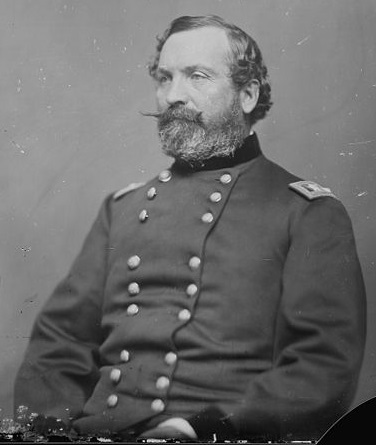
“What? Men dodging this way for single bullets? What would you do when they open fire along the whole line?”
His men were clearly embarrassed but couldn’t help ducking each time the gunfire came.
Unable to contain his embarrassment, Sedgwick hollered “They couldn’t hit an elephant at this distance!”
Then came another bullet, whistling as it raced through the air. Every other person ducked, except Sedgwick.
According to General Martin T. McMahon, the shrill whistle of the bullet closed with a dull, heavy blow. He made to point out to Sedgwick that these were explosive bullets. But then he saw the General slowly turning towards him in a death fall. The blood spurting from Sedgwick’s left cheek made McMahon realize that a great disaster had occurred.
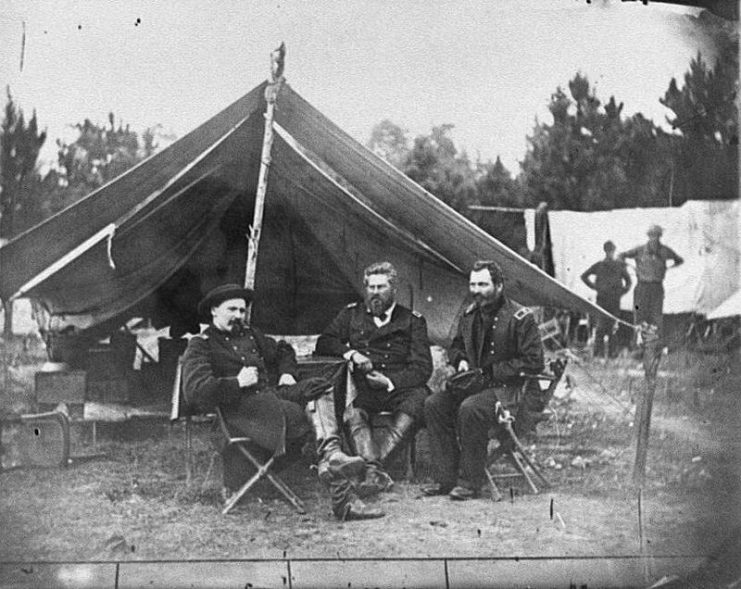
Frantic efforts to save Sedgwick’s life proved futile as he continued to bleed until his hair was soaked with his own blood.
Sedgwick was the highest-ranking Union officer to die in the Civil War. The sharpshooter responsible for his death was never found.
A well-loved general, his death was met with sadness on both sides of the battle. Among those who voiced their sadness was commander of the Confederate Army, General Robert E. Lee, who was disheartened by the fate of “an old friend.”
Sedgwick’s burial place is found at Cornwall Hollow Cemetery, in his birth town. He never had a wife or a child.
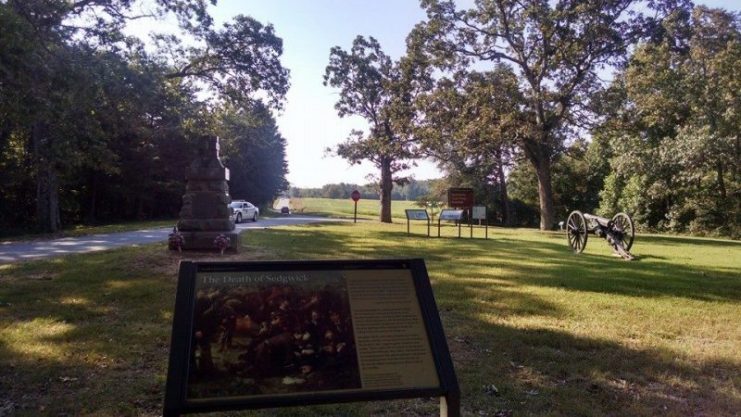
In commemoration of the General and his death at the Battle of Spotsylvania, a monument was dedicated in 1868 at the United States Military Academy, also known as West Point.
According to a legend at West Point, at midnight before the end of term exam, any cadet who spins the rowels of the monument’s spurs, while wearing their full uniform, will pass their final exam.
It’s been over one and a half centuries since the event at Spotsylvania, but the last words of General Sedgwick just before the sharpshooter hit him remain unforgettable: “They couldn’t hit an elephant at this distance!”
